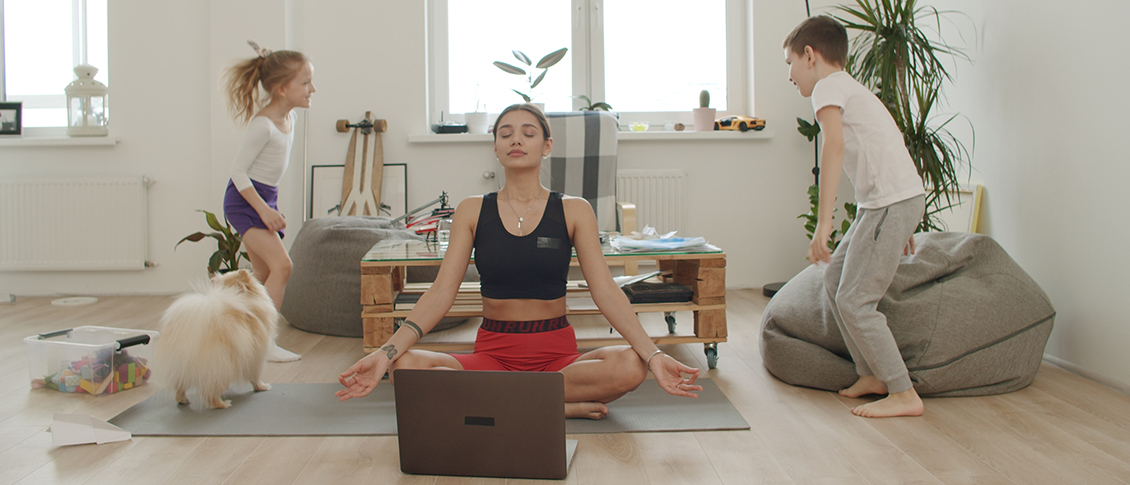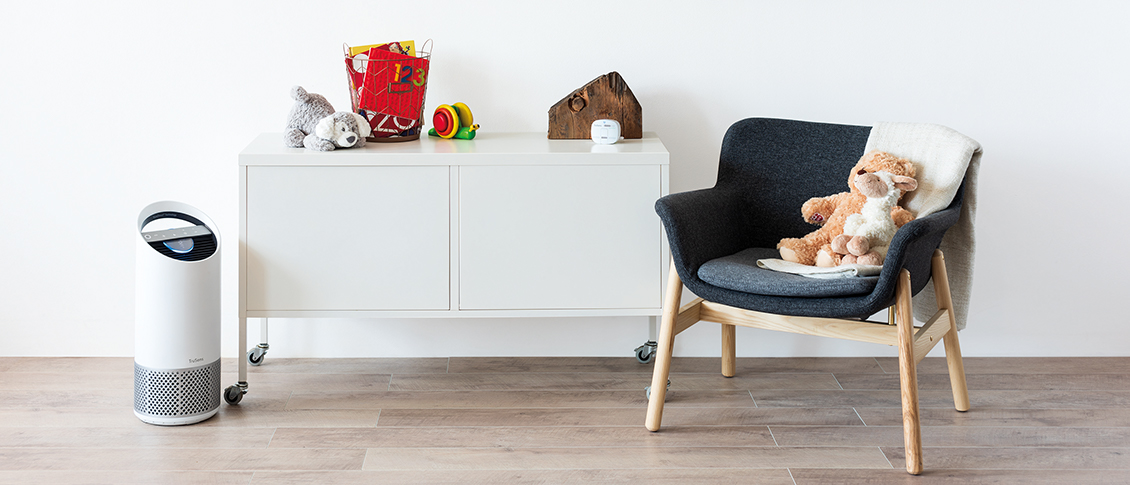How to Keep Your Mind Happy and Healthy When Working from Home
10.06.2021

Burnout is a very real problem that many workers deal with. This issue has been exacerbated by large numbers of people having to work from home. Research from Ipsos Mori revealed that 60% of people in the UK are finding it harder to stay positive day in, day out. Psychologists have even coined the term ‘pandemic burnout’ when discussing the effects of working from home on individuals.
Transitioning from an office to working from home is challenging and overwhelming. Whilst there is no denying that it can have a positive impact on your work life balance, it can be hard to establish a routine that promotes healthy body healthy mind. In the article below we discuss how to put your welfare first when working from home.

Ask for flexible working hours
When you commute to your regular place of work you have a set schedule. Walk the dog. Breakfast. Drop the kids at school. Gym. Whatever your routine it will work perfectly for you. When working from home becomes the norm it can be incredibly hard to adapt your routine, especially with children home from school or family members breaking your focus.
Employers should be sympathetic to this – chances are they are having the exact same experience in their own homes. Set up a meeting with your manager to discuss your working hours is a great way to explore your options. Don’t be afraid to outline a plan that works for you. As long as you don’t push the envelope too much it is likely your employer will oblige. After all, they want a productive and happy member of staff.

Combat working from home fatigue
Have you felt particularly tired when working from home? For the masses who had to navigate this new way of working due to the pandemic, many feel utterly exhausted despite zero commute and the ability to work in their pyjamas if they wish.
Like these people, you are probably wondering why you are feeling so tired from start to finish, despite a good night’s sleep and access to all your favourite home comforts. Turns out that there is a logical reason for your fatigue.
If you, like many, have been sent home to work the lack of choice can be frustrating and disorientating. Getting used to the new normal for you can take time and you will be exerting energy to create a new workflow. Once you settle into a new routine, fingers crossed, you will become your usual peppy self again.
Another reason for your tiredness could be an increase in conscious thought. Before working from home, you could breeze from task, to meeting, to lunch date, to task without very little thought. Now everything has to be planned and you have to co-create at distance, which isn’t always easy when technology doesn’t play ball. You’ve gone from auto pilot to having to plan and execute your day which, in turn, is making you feel exhausted.
Lastly, one of the biggest reasons for fatigue at home is you simply miss your colleagues. Human connection is incredibly important for our mental health and there is no doubt that you and your colleagues are waiting for a belly laugh in the office or a chinwag whilst making a coffee. These meetings, albeit short, add variety to your day and keep your brain engaged and endorphin levels high. Whilst we can communicate virtually with colleagues its not the same as the one-on-one connection in the workplace.
Nutrition can promote a healthy mind at work
Is it true what they say, you are what you eat? Certainly, a home working diet of pizza, doughnuts, and endless caffeinated drinks is not going to have you feeling your best mentally or physically. Improving your diet whilst working from home will help:
- Improve your mood
- Give you more energy
- Help you think clearly
Eating reguarly is important for your body. Failing to do so can see your blood sugar drop, which can result in brain fog, irritability, and a low mood. None of these are conducive to a good working day. Introducing slow-release foods such as pasta, rice, oats, cereals, nuts, and seeds into your diet can help fuel you throughout the day. Avoid treats such as sweets, sugary drinks, biscuits, and chocolate. These can cause your blood sugar to peak and trough rapidly, resulting in a sugar crash and less concentration from you.
It is no secret that we should be getting our five a day. Fruits and vegetables contain the micronutrients we need to keep us physically and mentally healthy. Fresh, frozen, tinned, juiced, and dried fruits and vegetables all count towards your daily quota.
Similarly, protein contains amino acids which whizz around your brain, helping to regulate your thoughts and feelings. Lean meat, fish, eggs, cheese, legumes and soya products are all protein rich, meaning you stay fuller for longer too. This means less reaching for the pastries and spiking your sugar!

Employer duty of care
Whilst you may not be in the office, your employer still has the same responsibilities towards you and your colleagues regarding welfare. Employers will need to encourage open communication and be aware of employee safety and protection.
Working from home can be lonely, especially if you live by yourself. Employers should keep in frequent touch with lone workers as they are at a higher risk of stress and mental health issues. If you live alone make sure you let this be known to senior staff and colleagues, it will help them be more mindful of your current circumstances. Furthermore, if you are aware of colleagues that are lone workers, it can be beneficial for you to touch base with them too.
It may seem difficult, when not surrounded by managers and colleagues, to receive the necessary support you need if you are struggling. Be as open as you can with your team, and they will be able to guide you. Remember, you can always reach out to your GP, family, and friends also.

Maintaining your health working from home
Whilst you spend a large portion of your time working, you need to indulge in selfcare too. One great way to achieve this is by investing in an air purifier. With the average person taking 16 breaths per minute, focusing on creating the perfect environment when working from home is important. Air purifiers can be used in any room throughout your house, including your home office. They reduce airborne allergy and asthma triggers, as well as the flu virus. This leaves you working in clean air and breathing easier.
Looking after yourself and enjoying the things you love increase your happiness. Making yourself a priority both inside and outside of work will have a long-lasting effect on your ability to work from home happily, healthily, and effectively.